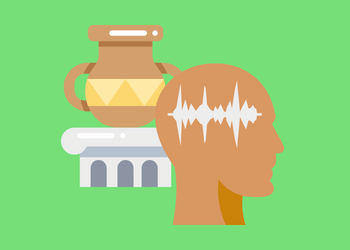Is History and Economics a Good Double Major? A Comprehensive Guide

Deciding on a college major can be a daunting task, especially when students are considering combining two fields into a double major. Among popular combinations, history and economics stand out as both interesting and practical choices. But the question remains: Is history and economics a good double major? This article will explore the advantages and challenges of pursuing this academic path, how it can be valuable in the workforce, and what you need to consider when choosing to major in these two distinct fields.
What is a Double Major?
Before discussing the specifics of a history and economics double major, it’s essential to understand what a double major entails. A double major allows students to study two fields in depth, earning degrees in both. The advantage is that it can open up a broader range of career opportunities by combining expertise in two areas. However, it also requires more dedication, time, and effort since students need to complete the requirements for two separate majors.
Why Choose History?
History is a subject that helps students understand the world by analyzing past events, societies, and cultures. A history major typically focuses on critical thinking, analysis, and research, skills that are valuable in various professions, from education to law and beyond.
History is often seen as a way to better understand current events by providing context from the past. Students learn to read and interpret primary sources, evaluate evidence, and build well-supported arguments. These are skills that are highly transferable and useful in any career.
Why Choose Economics?
Economics, on the other hand, is the study of how individuals, businesses, governments, and societies make decisions about allocating resources. It involves analyzing data, understanding trends, and forecasting future economic conditions. An economics major offers strong quantitative and analytical skills, which are highly sought after in the job market.
Economics is often seen as a more practical major, leading directly to careers in finance, consulting, government, and business. The ability to analyze complex data and understand market trends makes economists valuable in many sectors.
The Benefits of a History and Economics Double Major
When students choose to double major in history and economics, they gain a unique blend of skills that make them adaptable and versatile in various fields. Here are some key benefits of this double major:
- Develop a Broad Skill Set
- Combining the qualitative skills of a history major with the quantitative skills of economics creates a well-rounded academic profile. History hones research and writing abilities, while economics enhances problem-solving and data analysis skills.
- Prepare for a Wide Range of Careers
- A double major in history and economics opens doors to diverse career paths. Students can pursue jobs in education, public policy, finance, consulting, and even law. The ability to understand historical context and analyze economic data is valuable in shaping decisions in many sectors.
- Gain Critical and Analytical Thinking
- History emphasizes critical thinking, while economics focuses on analytical problem-solving. Together, they equip students with the ability to tackle complex issues from multiple perspectives. This skill set is particularly useful in policy-making, where understanding both historical context and economic implications is crucial.
- Enhance Your Graduate School Applications
- Whether you’re considering law school, an MBA, or a PhD in either history or economics, having a double major demonstrates your ability to handle diverse academic challenges. It shows a commitment to both in-depth research and data analysis, making you a competitive candidate for graduate programs.
Challenges of Pursuing a History and Economics Double Major
While a double major offers many advantages, it also comes with challenges. Here are some of the potential hurdles to consider:
- Time and Workload
- Pursuing two majors requires completing the necessary coursework for both fields. This can mean a heavier course load and less flexibility in your schedule. Balancing the demands of both majors, especially with one as reading-intensive as history and another as math-focused as economics, can be tough.
- Fewer Electives
- A double major leaves less room for electives or exploring other areas of interest. You may have to give up taking classes in other subjects or participating in extracurricular activities to focus on completing the requirements for both majors.
- Potential for Overlap
- While the fields of history and economics can complement each other, they also have very different approaches. History tends to be more narrative and qualitative, while economics is quantitative and data-driven. Balancing these two methodologies can be challenging for some students.
Career Opportunities for History and Economics Double Majors
A double major in history and economics equips students with a unique blend of skills that can lead to various career paths. Here are a few examples:
- Public Policy Analyst
- Many policy decisions require understanding both historical context and economic consequences. History helps inform the social and political factors at play, while economics offers the tools to analyze the costs and benefits of different policy choices.
- Financial Analyst
- While history may not seem directly related to finance, the research and analytical skills developed in both fields make history and economics majors valuable in finance. Understanding market trends and the broader economic context is crucial for making informed financial decisions.
- Consulting
- Consulting firms often look for individuals who can analyze data, think critically, and communicate effectively. A double major in history and economics provides a diverse skillset that consulting firms value, especially when advising clients on policy, strategy, or market conditions.
- Journalism
- History majors excel at research and writing, while economics majors understand market dynamics and data interpretation. A double major can lead to a career in journalism, particularly in writing about economic policy, financial markets, or global events.
- Law
- Many students who pursue a double major in history and economics are preparing for law school. The critical thinking and argumentation skills developed in history, combined with the logical reasoning and data analysis skills from economics, provide a solid foundation for legal studies.
Real-World Applications of a History and Economics Double Major
The skills gained from studying history and economics have real-world applications in various industries. For instance, understanding economic policies and their historical context can be crucial for government officials working on trade agreements or tax reform. Similarly, historians who work in think tanks often use economic data to analyze trends in social and political history.
In the private sector, businesses benefit from employees who can combine historical knowledge with economic forecasting. Understanding the economic consequences of past financial crises can help businesses and policymakers better navigate future challenges.
Final Thoughts
Is history and economics a good double major? Absolutely. It offers a versatile education that prepares students for a wide range of careers, from public policy and consulting to journalism and law. However, it’s important to consider the challenges, including a heavier workload and the need for strong time management skills.
For students interested in both the humanities and social sciences, a double major in history and economics provides the best of both worlds: the ability to think critically and contextually about the past while also applying quantitative analysis to modern economic problems. In today’s ever-changing job market, this combination of skills can set graduates apart from their peers.
Questions & Answers
Q: Will I be able to handle the workload of a double major in history and economics?
A: The workload for a double major can be intense, but with good time management and organizational skills, it is manageable. Balancing reading-heavy history courses with math-intensive economics courses can actually provide a refreshing change of pace.
Q: What are the best graduate programs for double majors in history and economics?
A: Many students with a history and economics background pursue law school, public policy graduate programs, or MBAs. PhD programs in either field are also options, depending on your career goals.
Q: Can I combine history and economics with another minor?
A: Yes, depending on your institution’s requirements, you can pursue a minor alongside a double major. Common minors for history and economics students include political science, sociology, or international relations.




